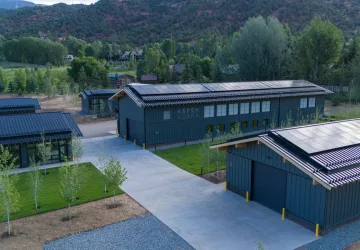If you’re considering an extension to your existing property, then you’ll have a range of factors and possible complications to consider. Are you looking to add to the value of your property, with a view to a potential resale? Or, rather, are you looking for a space to live in for years to come? Where are the legal limits on what can and can’t be built?
Plan, Design and Budget
Getting the extension right means putting in place the appropriate plans, and executing them. You can think of this preliminary phase in three sections. There’s the plan, which is a broad overview of what you’re going to achieve; there’s the design, which will provide instructions to those who’ll actually be implementing the plan; and, finally, there’s the budget, which will determine how your money is going to be allocated through the process.
When it comes to budgeting, it’s better to be generous. Don’t stretch things too far, or you could end up with a poor end result. In general terms, we might expect to spend several thousand pounds for every square metre of your extension. This figure, however, can vary considerably depending on your ambitions.
What About the Legal Side of Things?
There are two areas of law worth thinking about during the planning stages.
The first are building regulations. Everything in your home should be installed to a standard which ensures safety and a certain level of efficiency. This applies to walls and other structural elements, as well as utilities like gas and electricity.
There are also planning permissions, which are granted at a local level. Not all extensions need planning permission. If your plans won’t significantly expand the footprint of your building, and your extension isn’t going to be visible from the street, then the project might be considered a ‘permitted development’.
If it later turns out that you do need planning permission, and you haven’t secured it before commencing work, then you could be made to undo the work you’ve already done. This can be an enormously expensive and stressful thing. In other words, it’s a good idea to seek permission, even if you suspect you don’t need it.
DIY vs Hiring Professionals
Professional buildings and other tradespeople will have access to skills, and specialised tools like rotating laser levels, impact drivers and routers. As such, they’ll get the job done more quickly, and to a higher standard. However, they’ll only do this for a price.
There are certain parts of building your extension that will require the intervention of professional tradespeople. On the other hand, you might be tempted to save money by doing a few more mundane tasks yourself. If you’ve already invested time in building your DIY skills, then it might be that certain things are within your capabilities. Provided that you understand your limits, DIY can be a great way to cut the overall cost of your project. If you don’t know your limits, however, it can be a great way to inflate those costs.





